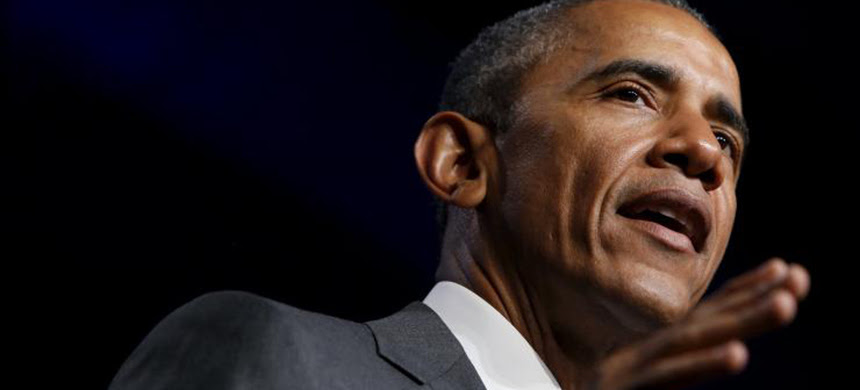
President Barack Obama.
By Patrisse Cullors, Guardian UK
Just days after several violent, deadly attacks on black people at the hands of the police, ABC invited families, organizers, officers and more to join Barack Obama in a town hall to discuss race relations in America. The idea was to offer space for reconciliation and those in attendance were told that we would have an opportunity to engage in a conversation on trust and safety in our communities.
Among those in the room were pastor Traci Blackmon; Cameron Sterling, son of Alton Sterling, who was killed by Baton Rouge police; Erica Garner, daughter of Eric Garner, who was killed by the NYPD two years ago; and a host of other people impacted by police violence and terror. Also in attendance were policymakers, police and families of law enforcement.
True reconciliation requires far more than a casual conversation, of course. But we committed to leaving our families behind to attend because we believe in real democracy. That involves the right to petition our government and question our leadership about their role in ensuring black people have equitable treatment under the law. What we got, though, was none of that.
Each of us was strategically seated. The seating arrangement didn’t allow for meaningful conversation, but instead created a carefully manipulated environment that placed black grief and pain front and center and little more. The president was uniquely positioned at that moment to discuss the beginnings of a strategy to save black lives from police violence and terror – but he didn’t.
We witnessed members of our movement rustle with anxiousness when he minimized our experiences. He exclaimed that Black Lives Matter, but didn’t follow up with substantive ways to ensure they do. It was disturbing to watch. Some of us left in tears.
We are disappointed and frustrated that the hour-long town hall didn’t offer an opportunity for significant engagement – or the chance to talk about solutions. Instead, we were silenced. ABC used the faces of the black community to exhibit a watered-down message of hope and reconciliation. And Obama collaborated.
Instead of what felt like a placating and painfully repetitive conversation about issues – which organizers and advocates had already broached with the president – we should have been discussing more pressing matters. Like Alonzo Smith, a 27-year-old schoolteacher, who was killed by special police in Washington DC – and 18-year-old Ralphael L Briscoe, who was shot in the back by Officer Chad Leo on Elvans Road SE, also in the very city where we were gathered.
Our hearts are broken. While these are certainly very troubling times for many people, we are yearning for meaningful change that goes beyond a series of conversations. The Obama administration can do something about the statistically proven problems with our criminal justice system and police violence that wreaks havoc on our communities.
Every time we get close to moving forward, the conversation stops short of a real commitment to lasting and meaningful change – the kind of change we all expected when we cast our ballots in 2008 and again in 2012. We’re not dense. We know checks and balances exist, and that it is not the job of one man to remedy the entirety of violence against black people. But we expect him to try harder.
As President Obama approaches the end of his final term, we urge him to take bold and meaningful executive action to invest in alternative strategies to improve accountability and security to protect black communities.
Instead of investing in local police, we ask the administration to defund police departments that have continuously violated the civil and human rights of black people and take an iterative approach to creating new systems. The problem has been acknowledged, which is the first step. But a patchwork approach to solutions leaves too many of our communities vulnerable. The time to act is now.














